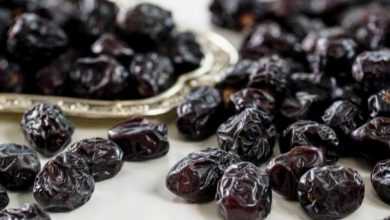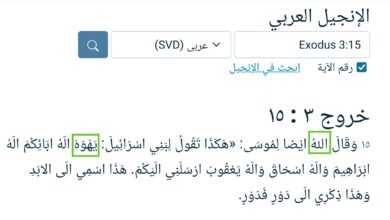What is Umm Walad? Can Umm Walad be Sold?

When a slave woman under the authority of a master gives birth to his child, she is referred to as Umm Walad. In this case, her freedom is assured, and she cannot be sold (unless the slave woman passes away).
Nearly all the companions of the Prophet (peace be upon him) agreed on this matter. The renowned Imams of the 4 Sunni madhhabs also concur on this issue.
In the Sunan al-Daraqutni, it came in a sahih isnad,
الْمُخَرِّمِيُّ , نا عَبْدُ اللَّهِ بْنُ دِينَارٍ , عَنِ ابْنِ عُمَرَ , قَالَ: «نَهَى رَسُولُ اللَّهِ صَلَّى اللهُ عَلَيْهِ وَسَلَّمَ عَنْ بَيْعِ أُمَّهَاتِ الْأَوْلَادِ , لَا يُبَعْنَ وَلَا يُوهَبْنَ وَلَا يُورَثْنَ , يَسْتَمْتِعُ بِهَا سَيِّدُهَا مَا بَدَا لَهُ فَإِذَا مَاتَ فَهِيَ حُرَّةٌ»From Abdullah ibn Muti’, from Abdullah ibn Ja’far al-Mukharrami, from Abdullah ibn Dinar, from Ibn ‘Umar, who said: “The Messenger of Allah (peace be upon him) prohibited the sale of slave mothers. They should not be sold, gifted, or inherited. Their masters may enjoy their company as long as it pleases them, but when they pass away, they become free.”[1]Kitab Sunan al-Daraqutni [Arabic], 5/237, Hadith No. 4250, The hadith is sahih and narrated via several chains. See:
http://hadith.islam-db.com/single-book/542/سنن-الدارقطني/0/3726
http://hadith.islam-db.com/single-book/542/سنن-الدارقطني/0/3728
عَنْ خَوَّاتِ بن جُبَيْرٍ، قَالَ: مَاتَ رَجُلٌ وَأَوْصَى إِلَيَّ فَكَانَ فِيمَا أَوْصَى بِهِ أُمُّ وَلَدِهِ وَامْرَأَةٌ حُرَّةٌ، فَوَقَعَ بَيْنَ أُمِّ الْوَلَدِ وَالْمَرْأَةِ كَلامٌ، فَقَالَتْ لَهَا الْمَرْأَةُ: يَا لَكْعَا! غَدًا يُّؤْخَذُ بِأُذُنِكِ فَتُبَاعِينَ فِي السُّوقِ! فَذَكَرْتُ ذَلِكَ لِرَسُولِ اللهِ صلی اللہ علیہ وسلم ، فَقَالَ: لا تُبَاعُ أُمُّ الولَدِ.Narrated by Khawwat ibn Jubayr, he said:“A man died and left a will to me, in which he mentioned a slave mother and a free woman.A dispute arose between the slave mother and the free woman regarding the will.The free woman said to the slave mother, ‘Oh, you! Tomorrow, they will take hold of your ear and sell you in the market!’I mentioned this to the Messenger of Allah (peace be upon him), and he said, ‘The slave mother should not be sold.'”
Stated in Muwatta Imam Malik,
حَدَّثَنِي مَالِك عَنْ نَافِعٍ عَنْ عَبْدِ اللهِ بْنِ عُمَرَ أَنَّ عُمَرَ بْنَ الْخَطَّابِ قَالَ أَيُّمَا وَلِيدَةٍ وَلَدَتْ مِنْ سَيِّدِهَا فَإِنَّهُ لَا يَبِيعُهَا وَلَا يَهَبُهَا وَلَا يُوَرِّثُهَا وَهُوَ يَسْتَمْتِعُ بِهَا فَإِذَا مَاتَ فَهِيَ حُرَّةٌ.Narrated by Abdullah ibn Umar (may Allah be pleased with him): Umar ibn al-Khattab (may Allah be pleased with him) said, “Any female slave who gives birth from her master, the master is not allowed to sell her, nor can he gift her to anyone else, and no one else can claim ownership over her. The master may enjoy her , but when the master passes away, she becomes free.”[4]Muatta Imam Malik 38:6 Both Abdullah bin Umar (RA) and Nafi’ (RA) are the rabbis of Bukhari-Muslim. The hadith is authentic.
Al-Jurqani stated, “Umar (may Allah be pleased with him), the majority of the Tabi’in, the four Imams, and most Islamic jurists are in agreement on this matter. When Umar (may Allah be pleased with him) prohibited the sale of umm walad, it was also prohibited based on consensus.”[5]Sharh al-Jurkani 1509
For further references on the emancipation of slave mothers, refer to Sunan al-Kubra by al-Bayhaqi, volume 76, chapter of Ummu Walad[6]https://al-hadees.com/hadees/bayhaqi/76/1.
It is mentioned in Musannaf Ibn Abi Shaybah,
ابن ابی شیبہ
کتاب: خرید و فروخت کے مسائل و احکام
باب: ام ولد کی بیع کرنا جب اُس کا جنین ( ناتمام بچہ) گر جائے
حدیث نمبر: 21893
(۲۱۸۹۴) حَدَّثَنَا وَکِیعٌ ، عَنْ سُفْیَانَ ، عَنْ أَبِیہِ ، عَنْ عِکْرِمَۃَ ، قَالَ : قَالَ عُمَرُ بْنُ الْخَطَّابِ فِی أُمِّ الْوَلَدِ : أَعْتَقَہَا وَلَدُہَا ، وَإِنْ کَانَ سِقْطًا۔(21894) Hazrat Umar (may Allah be pleased with him) has mentioned regarding Umm Walad that even if her child is incomplete or disabled, she will be granted emancipation.[7]Musannaf Ibn Abi Shaybah (Arabic) – 21894 (Islamone App).
If a female slave gives birth to the child of her master, whether the child is alive or stillborn, it guarantees the emancipation of the female slave after the death of her master. This hadith is found in Kanzul Ummal,
کنزالعمال
کتاب: غلام آزاد کرنے کا بیان
باب: ام ولد کا بیان :
حدیث نمبر: 29653
29653- “أم الولد حرة وإن كان سقطا”. “طب” عن ابن عباس.Even if a female slave gives birth to an incomplete (imperfect) child, she will still be emancipated.[8]Qanjul Ummal – 29653 (Islamone App), Chain- Weak-Zaif-al-Jamiyyah 1275
This hadith is supported by other authentic/valid hadiths as well. Considering the presence of Shahid (witnessing) narration, this hadith is also considered authentic.
Regarding how the child will be, Ibn Rushd (RA), who passed away in 595 AH, has mentioned the following:
“Malik (the main Imam of the Maliki school of thought) stated that any form of sale related to the slave woman’s pregnancy, even if it is the fetus or a blood clot, is prohibited.
Al-Shafi’i (the main Imam of the Shafi’i school of thought) stated that the physical presence and physical characteristics (such as the shape of the hands and feet) should be evident.”
Ibn Rushd has also mentioned that:
“Based on consensus, it has been established that selling a slave woman even during pregnancy is prohibited.”[9]Book: Bidayat al-Mujtahid – The Distinguished Jurist’s Premier
Translated into English by: Imran Ahsan Nyazee
Publisher: Garnet Publishing
Volume II, pp. 475-476
ابن ابی شیبہ
کتاب: خرید و فروخت کے مسائل و احکام
باب: ام ولد کی بیع کرنا جب اُس کا جنین ( ناتمام بچہ) گر جائے
حدیث نمبر: 21896
(۲۱۸۹۷) حَدَّثَنَا ہُشَیْمٌ، عَنْ دَاوُدَ، عَنِ الشَّعْبِیِّ، قَالَ: إذَا تَلبَّس فِی الْخَلْقِ الرَّابِعِ، فَکَانَ مُخَلَّقًا أُعْتِقَتْ بِہِ الأَمَۃُ۔Hazrat Shabi (RA) stated that when a child has a small resemblance (such as facial features or physical characteristics) to someone, they should be considered as a child and their mother should be treated as free.[10]Musannaf Ibn Abi Shaybah (21897).
To further explore the matter of whether an incomplete child is also considered free at birth, refer to Musannaf Ibn Abi Shaybah, Hadith numbers 21894 to 21900. Seek assistance from a knowledgeable scholar for verification.
In the books of jurisprudence, it is explained that during the later period of the Prophet’s (peace be upon him) life, he prohibited the sale of umm walad and their children.[11]Majmu Sharh Al Muhajab 9/243
The majority of jurists agree that umm walads cannot be sold, mortgaged, or inherited. However, at the death of the owner, the umm walad is granted freedom.[12]Mausu’ah al-Fiqhiyah
Original arabic-
جمهور الفقهاء – وعليه أكثر التابعين على أن السيد لا يجوز له في أم ولده التصرف بما ينقل الملك، فلا يجوز بيعها، ولا وقفها، ولا رهنها، ولا تورث، بل تعتق بموت السيد من كل المال ويزول الملك عنها.
The two narrations mentioned from Jabir ibn Abdullah (may Allah be pleased with him) can be perceived with a negative connotation. Jabir ibn Abdullah (may Allah be pleased with him) narrated:
Jabir bin `Abdullah was heard to say:“We used to sell our slave women and the mothers of our children (Umahat Awaldina) when the Prophet (ﷺ) was still living among us, and we did not see anything wrong with that.”[13]Ibn Majah 2517
Narrated Jabir ibn Abdullah:
We sold slave-mothers during the time of the Messenger of Allah (ﷺ) and of AbuBakr. When Umar was in power, he forbade us and we stopped.[14]Abu Dawud 3954
Based on the available evidence, scholars and jurists have provided the following explanation regarding this matter: Initially, during the early stages of Islam, there was no specific prohibition on the sale of slave mothers (umm al-walad). However, later on, it was prohibited.
Jabir ibn Abdullah and some others were not aware of this prohibition.[15]Majmu Sharh Al Muhajab 9/243
It was during the caliphate of Umar ibn al-Khattab (may Allah be pleased with him) that he became aware of this issue and brought it to the attention of Jabir ibn Abdullah.
Umar (may Allah be pleased with him) addressed this issue in his caliphate and provided solutions in accordance with the guidance of the Prophet (peace be upon him)[16]Fatah al-Qadir al-Manawi, Volume 6, page 385.
Ultimately, Allah knows best.
Original Author- Tahsin Arafat
Main article- উম্মে ওয়ালাদ কী? উম্মে ওয়ালাদ বিক্রয় কি বৈধ?
Translated into English by Fahim Khan
Footnotes
| ⇧1 | Kitab Sunan al-Daraqutni [Arabic], 5/237, Hadith No. 4250, The hadith is sahih and narrated via several chains. See: http://hadith.islam-db.com/single-book/542/سنن-الدارقطني/0/3726 http://hadith.islam-db.com/single-book/542/سنن-الدارقطني/0/3728 |
|---|---|
| ⇧2 | Mu’zam al-Tabarani al-Kabir [Arabic] 4039; 4147 according to other publications. |
| ⇧3 | Silsila Sahiha Arabic 2417, International 1305 Tahqeeq al-Albani: Sahih |
| ⇧4 | Muatta Imam Malik 38:6 Both Abdullah bin Umar (RA) and Nafi’ (RA) are the rabbis of Bukhari-Muslim. The hadith is authentic. |
| ⇧5 | Sharh al-Jurkani 1509 |
| ⇧6 | https://al-hadees.com/hadees/bayhaqi/76/1 |
| ⇧7 | Musannaf Ibn Abi Shaybah (Arabic) – 21894 (Islamone App). |
| ⇧8 | Qanjul Ummal – 29653 (Islamone App), Chain- Weak-Zaif-al-Jamiyyah 1275 This hadith is supported by other authentic/valid hadiths as well. Considering the presence of Shahid (witnessing) narration, this hadith is also considered authentic. |
| ⇧9 | Book: Bidayat al-Mujtahid – The Distinguished Jurist’s Premier Translated into English by: Imran Ahsan Nyazee Publisher: Garnet Publishing Volume II, pp. 475-476 |
| ⇧10 | Musannaf Ibn Abi Shaybah (21897). |
| ⇧11, ⇧15 | Majmu Sharh Al Muhajab 9/243 |
| ⇧12 | Mausu’ah al-Fiqhiyah Original arabic- جمهور الفقهاء – وعليه أكثر التابعين على أن السيد لا يجوز له في أم ولده التصرف بما ينقل الملك، فلا يجوز بيعها، ولا وقفها، ولا رهنها، ولا تورث، بل تعتق بموت السيد من كل المال ويزول الملك عنها. |
| ⇧13 | Ibn Majah 2517 |
| ⇧14 | Abu Dawud 3954 |
| ⇧16 | Fatah al-Qadir al-Manawi, Volume 6, page 385 |





